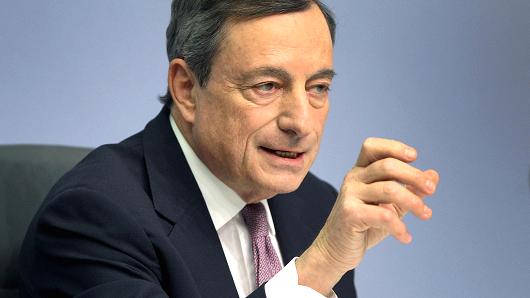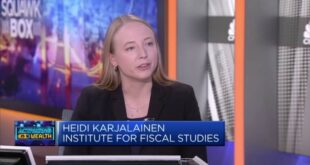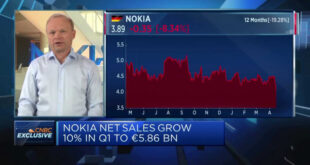
Daniel Roland | AFP | Getty Images
Mario Draghi, President of the European Central Bank (ECB) addresses a press conference following the meeting of the ECB’s Governing Council in Frankfurt am Main, western Germany, on January 25, 2018.
This is a breaking news story, please check back later for more.
The European Central Bank (ECB) opted to keep interest rates unchanged Thursday and to continue its asset purchase program until September.
The bank said that “the Governing Council expects the key ECB interest rates to remain at their present levels for an extended period of time, and well past the horizon of the net asset purchases,” which is set to last until September 2018.
At the bank’s last monetary policy meeting in January, policymakers agreed that it was too early to make changes to the current level of stimulus, but admitted there could be changes in “early” 2018.
For now the quantitative easing program will continue at the pace of 30 billion euros per month. The bank also said that the stimulus could go beyond September if economic conditions change.
However, analysts hold very different views regarding the future of the quantitative easing (QE) program.
Wolfgang Kiener, senior analyst at BayernLB, told CNBC via email: “Given only a slow increase of core inflation, we expect the ECB to reduce QE from October on to 15 billion euros per month and to stop it altogether at the end of year.”
But Mike Bell, global market strategist at J.P. Morgan Asset Management, said that due to solid economic growth and an expected fall in unemployment across the euro zone, “the ECB are likely to feel comfortable ending QE in September.”
During January’s meeting, the euro hit $1.25 as ECB President Mario Draghi addressed the press, despite his dovish tone. At the time, the bank said that exchange rate was a “source of uncertainty.”
This is because the currency had surged since the start of the year, especially against the dollar. A stronger euro could have an impact on European exports and affect prices in the region. As a result, the bank could be forced to change its monetary policy.
 EU News Digest Latest News & Updates
EU News Digest Latest News & Updates


